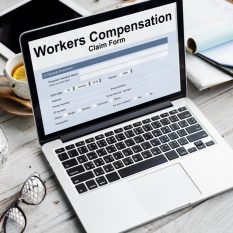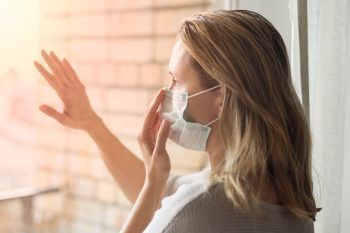Covid-19 (Coronavirus) has spread to several states in the United States, including numerous confirmed cases in New Jersey.

A surge in claims under worker’s compensation laws might be on the horizon if New Jersey employees become infected, thus filing claims for medical care benefits, lost wages, permanent disability, or even dependency claims. Still, no specific guidelines have been set on whether or not a Covid-19 claim can be compensated under the New Jersey Workers’ Compensation Act. Insurance carriers and employers should keep in mind the potential need to apply worker’s compensation laws if an employee tests positive for Covid-19; hence the importance of reinforcing recommendations to keep employees safe.
Where Did the Exposure to Covid-19 Take Place?
The main issue to resolve when determining whether or not workers’ compensation applies in New Jersey is if the place of contact with a Covid-19 positive person actually happened at the workplace, also known as “occupational” medical illness. This is to establish if the illness began at the place of employment while still having a valid contract.
It is usually difficult to confirm that communicable infections originated during the course of employment. Because it is hard to prove that the illness was contracted inside the workplace facility instead of anywhere else the employee might have visited, we do not usually hear about seasonal influenza workplace claims.
Some work lines might be more prone to illness exposure, depending on the workplace accommodation and type of interactions. Healthcare providers, for example, providing medical care to patients that have been confirmed as Covid-19 positive, might have more solid arguments, with useful evidence of casual contact with the virus while performing their job. On the other hand, we could have a nurse or other health care provider who is diagnosed as Covid-19 positive immediately after caring for a patient who had also tested positive for the same infectious disease.
How the Burden of Proof Can Work in Your Favor
A very well-known case that may be comparable to the aforementioned situation involved contracting Lyme disease. Regarding the case of Bird v. Somerset Hills Country Club, 309 N.J. Super 517 (1998), Mr. Bird worked as a groundskeeper at the country club when he was diagnosed with Lyme disease. According to witness statements during the trial, Bird’s tasks were often carried out at wooded areas where Lyme tick larvae typically nest. It was reported that he used to work outdoors approximately 40 hours per week, all year, and only a few hours at home gardening. Medical experts who were called to participate in Bird’s case agreed that he probably was infected while performing his duties. The Lyme disease was most likely contracted at the workplace, as determined by the compensation judge. During the appeal process, the Appellate Division maintained the hearing judge’s decision. That which serves as the burden of proof in such cases is the ‘more probable than not’ language, meaning the petitioner must prove whether the exposure to the virus did indeed happen, more probable than not while performing job-related duties.
Another similar court determination was reached in the case of Raimoni v Morris County Park Police and Commission, No.A-0106-12T1. Raimoni was a mounted patrol officer whose duties included patrolling forest woodland often visited by deer, thus frequently exposing herself to ticks while on duty. As discussed in the case of Bird, the court ruled that Raimoni should be compensated for contracting Lyme disease because it was more probable that she became exposed to the disease while performing her job.
What Type of Compensation Would You Be Entitled To?

Considering that some Covid-19 cases, unfortunately, lead to death, a claim for dependency benefits filed on behalf of any documented legal dependents might also occur, provided there is a causal link between the death and the contraction of the disease, to a specific work environment exposure. Many industries and businesses may become affected in multiple ways as the Covid-19 concern increases. Employer exposure and employee health for worker’s compensation benefits are a couple of the main considerations this public crisis entails. Employers should continue to advocate and reinforce all the CDC and other international health organizations’ recommendations for employee protection and prevention of communicable diseases in general.
Consult a West Long Branch Personal Injury & Punitive Damage Law Firm
If you or a loved one have been exposed to or contracted Covid-19 at the workplace, you might be entitled to worker’s compensation benefits, including but not limited to overall medical care and mental health benefits. An experienced medical claims attorney can help you determine whether your claim qualifies under worker’s compensation benefits.
Powerful insurance companies retain high-end litigators to protect their interests; you must choose a law firm with the experience necessary to protect yours and get you the compensation you need and deserve.
At Chamlin, Uliano & Walsh, our experienced team of attorneys is ready to stand in your corner. If you live in Monmouth County, Ocean County, and New Jersey Area. You can call us at 732-440-3950 or contact us through our online contact form.
